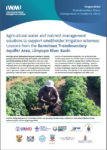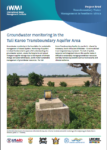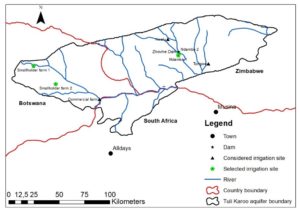The Limpopo Watercourse Commission (LIMCOM), which coordinates shared international water issues among its four riparian states – Botswana, Mozambique, South Africa and Zimbabwe – recently formalized a cooperation mechanism focusing on groundwater resources and management. The mechanism will facilitate and promote the conjunctive management of surface water and groundwater resources in the basin, thereby increasing the attention given to transboundary aquifers shared among the countries. So far, three major transboundary aquifers have been identified, the Ramotswa Aquifer, the Tuli Karoo Aquifer and the Limpopo Aquifer Basin.
The inaugural event took place in Gaborone, Botswana, at the Grand Palm Hotel Casino and Convention Resort from February 28 to March 1, 2019. The agreement to advance collaboration on groundwater in the Limpopo River Basin was consolidated through a preceding memorandum of understanding between the LIMCOM Secretariat and the Southern African Development Community (SADC) Groundwater Management Institute (SADC-GMI) in December 2018.
LIMCOM is the second of 15 international river basin organizations in the SADC region to establish a formal and dedicated institutional mechanism to oversee groundwater in the basin. This process is also advanced in ORASECOM, the Orange-Senqu River Commission.
Institutionalization of groundwater management at the river basin level in LIMCOM has been strongly supported by SADC-GMI as well as various research and engagement projects led by IWMI and partners, enhancing the understanding of transboundary aquifers in the basin and across the region.

Participants at inaugural meeting for the LIMCOM Groundwater Committee (Photo credit: SADC-GMI)








